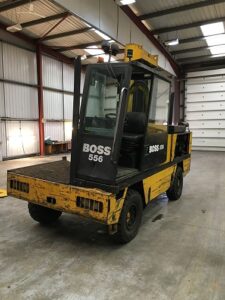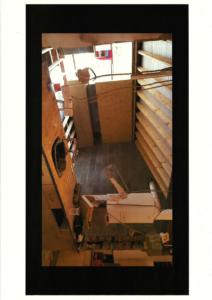The Responsible Car Wash Scheme (RCWS) launches a pilot project today, funded by the Home Office and supporters, to test the effectiveness and value of introducing licensing for car wash businesses. The pilot is based on a RCWS accreditation scheme for hand car washes to ensure these businesses treat employees, customers and the environment fairly.
The pilot will be independently evaluated by Nottingham Trent University (NTU) and is supported by the Gangmasters and Labour Abuse Authority (GLAA), the Police, the Health and Safety Executive, Her Majesty’s Revenue and Customs, the Environment Agency, and the charity Unseen.
The process has been devised with advice from The Work, Informalisation and Place Research Centre at NTU, whose studies suggest the number of hand car washes in the UK is between 4,000 and 6,000. Whilst some operate lawfully, this has consistently been identified as an industry where workers are at risk of exploitation ranging from poor working conditions to modern day slavery. Legitimate businesses are undercut by those breaking the law, creating an unfair competitive landscape. Many operate from unsuitable premises that discharge dangerous effluent into water courses and where staff are given ineffective protective equipment when handling dangerous and corrosive cleaning materials.
The pilot builds on previous RCWS initiatives such as a voluntary accreditation scheme working with supermarkets and national network operators which resulted in backing from Tesco, Sainsbury’s, Asda, Morrison’s and Waitrose.
Ian Clark, professor of work and employment at Nottingham and Trent University said: “Our research into hand car washes has shown widespread non-compliance which has far reaching implications for workers and the environment. The government recognises that an accreditation scheme designed to promote compliance and drive up standards for hand car washes can play a role in preventing exploitation of workers and water pollution in this sector. Our role is to explore the efficacy of the RCWS trial and test this as a workable system to implement mandatory licencing on a national level.”
Teresa Sayers, managing director, RCWS said: “With car washes now reopening after lockdown, risks are resurfacing with regards to violation of labour, employment, health and safety and environmental regulations. RCWS aims to ensure compliance, improve standards, and give consumers confidence that they are choosing a fair car wash, by accrediting businesses that adhere to the RCWS Code of Practice. With Home Office backing and an independent evaluation, this has the impetus it needs to work on a nationwide level.”
Darryl Dixon director of strategy, GLAA said “The GLAA has supported the principle of this project, and its funding. Concerns over irregularity in this industry have increased public interest, and awareness of some issues in the hand car wash sector. While we recognise that some businesses aim to operate irregularly, requiring enforcement, there are those that may need assistance and education to raise their awareness of what they need to do to be compliant. Building a compliant industry, prevention, education and enforcement go hand in hand to provide a level playing field for legitimate businesses and reduce the risk of exploitation of workers.
Notes to editors
The pilot will implement four interventions to explore the efficacy of the approaches. They are:
- The RCWS working with the assistance of Local Council, the GLAA, Thames Valley Police (Slough)
- The RCWS operating in isolation (Luton)
- A Land Registry/Landlord intervention (Hillingdon)
- Control area mapping sites at start and finish of the pilot to see any change or engagement with RCWS (Watford)
RCWS Accreditation requires the operator to meet and abide by the Code of Practice in full.
- Consent to Trade and Trading Standards
- Financial Transparency and Corporate Governance
- Providing Safe and Hygienic Working Conditions
- Protecting the Environment
- Compliant and Ethical Employment Practices and prevention of worker exploitation
About RCWS
The Responsible Car Wash Scheme (RCWS) is a not-for-profit organisation founded to promote compliance and raise standards in the car wash industry. It aims to be a positive force in improving conditions for workers and upholding their statutory rights. Launched in October 2018 at the House of Lords, the scheme has the backing of National and Local Government, the Gangmasters and Labour Abuse Authority, the Police, the Health and Safety Executive, Her Majesty’s Revenue and Customs, the Environment Agency and the charity Unseen, all of whom have assisted in its development.
About WIP
The Work, Informalisation and Place Research Centre (WIP) provides methodologically innovative interdisciplinary studies of contemporary work and employment in sectors such as hand car washes, nail bars, and small-scale garment manufacturing. Work in these sectors tends towards casualisation and informalisation where workers operate under business models that embed patterns of labour market exploitation. Exploitation includes wage theft, under payment of the national minimum wage through to modern slavery where employer coercion centres on work for favours, labour bondage and tied labour in unsafe workplaces.
The post Home Office funds Responsible Car Wash Scheme pilot to prove case for licensing appeared first on HSE Media Centre.

